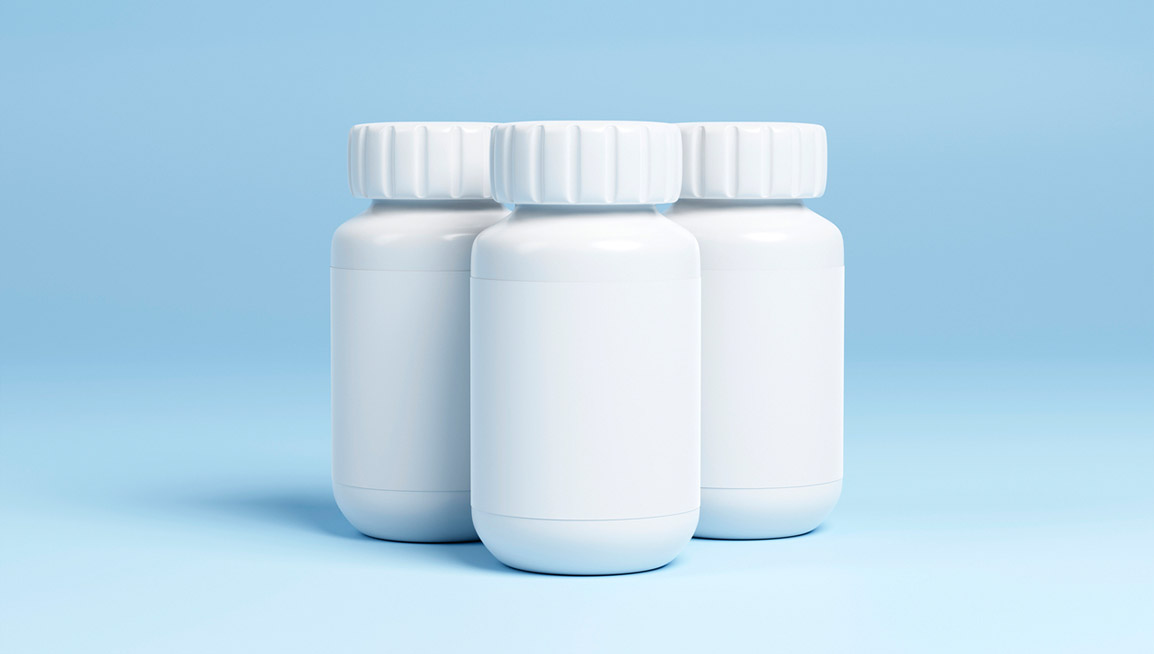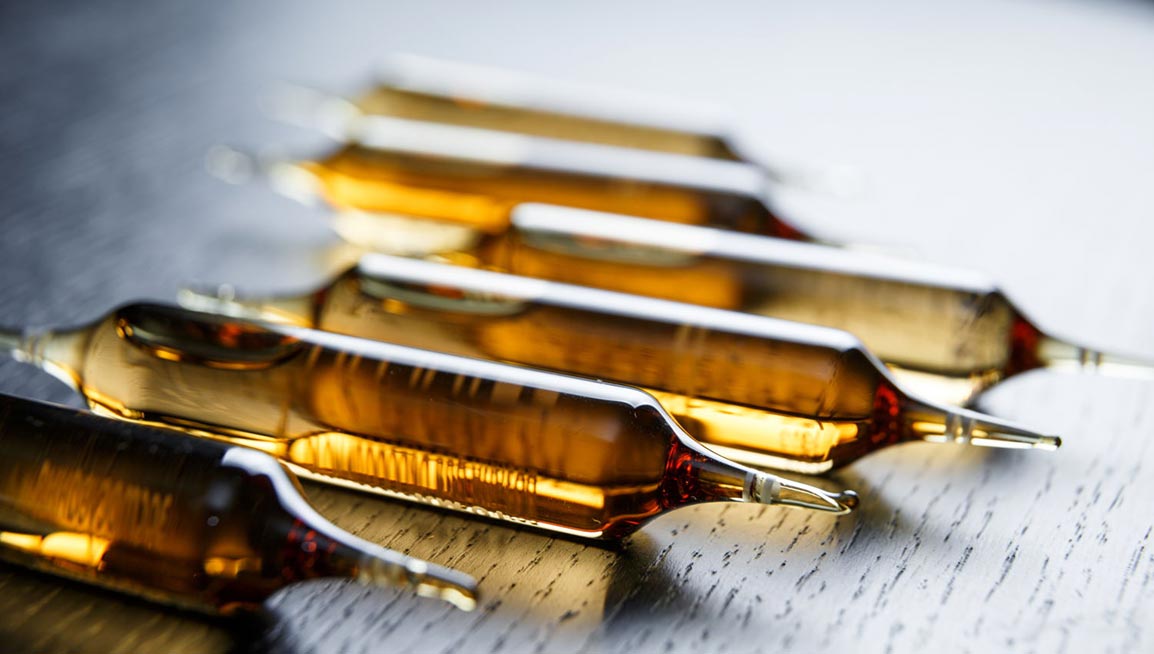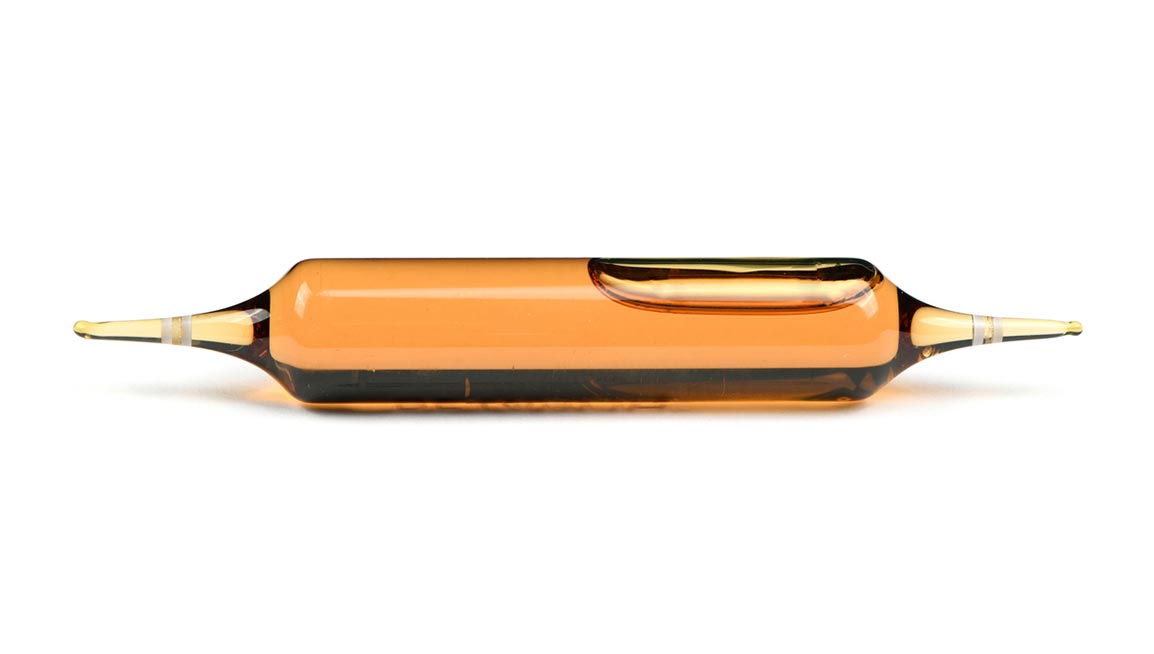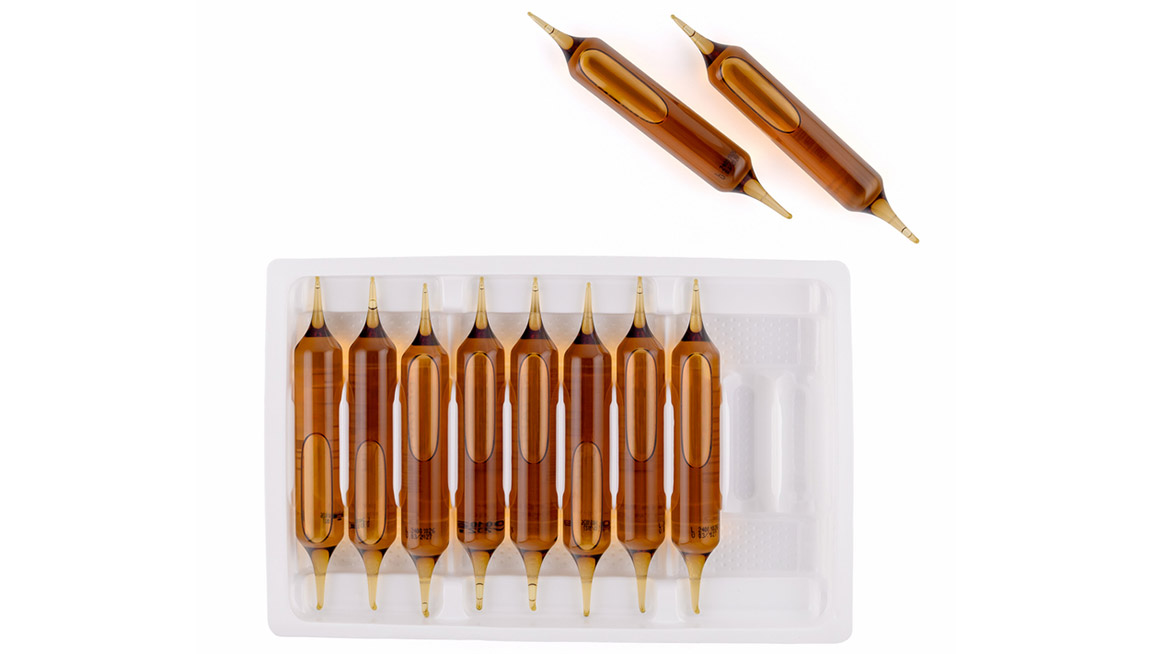Food supplements are foodstuffs whose purpose is to supplement the normal diet, and which are concentrated sources of nutrients, or of other substances with a nutritional or physiological effect, alone or in combination. Sold in dose form, food supplements exist in several formulations: capsules, tablets, ampoules, etc.
The double-tip ampoule is particularly well suited to dietary supplements, for many reasons:
- The double-tip ampoule is made of special-purpose pharmaceutical glass: an infinitely recyclable material, non-polluting and non-toxic because it is inert and there is no transfer of chemical from content to container.
- The double-tip ampoule is “single-dose”, but also hermetically sealed for full protection: the content retains all its freshness/effectiveness until opened.
- The double-tip ampoule, with capacities of 10ml or 15ml, enables a level of concentration of active ingredients which cannot be reached with other formulations.
Somewhere between a food and a medicine, food supplements are not intended for nourishment or treatment. Their action lies between health promotion and disease prevention. They make it possible to streamline medication use and reflect an awareness that measured and adapted responses are available to people in challenging situations.
In some non-pathological situations, therefore, food supplements can be recommended by the authorities as the first line of treatment before administering palliative drugs. This is particularly the case for sleep disorders. Indeed, used in parallel with improvements in lifestyle, food supplements can help people fall asleep or improve the quality of sleep and so make it possible to avoid or limit the need for sleeping pills.
In addition, food supplements empower and involve people in the preservation of their health on a daily basis. They are part of a shift from curative to preventive healthcare. In particular, they improve well-being and reduce some disease risk factors. In this regard, 77% of French people think that alternative medicine is preventive and part of the future (IFOP study June 2020).
For laboratories specializing in food supplements, the establishment of this market with new consumers is a pleasant surprise as well as providing a windfall effect. Thus this market, which was previously served by traditional pharmaceutical laboratories specializing in the manufacture and marketing of food supplements, has opened up to other players, food and cosmetics groups, as well as to start-ups with new innovative products.
Food supplements in numbers (Source: Synadiet):
- More than one in two French people has already taken food supplements.
- 92% of French people recognize the health benefits of food supplements.
- 2/3 of consumers take them on prescription from a healthcare professional.
- 75% of food supplement consumers prefer the natural character of the product (Harris Interactive 2021 study).
- 60% of food supplements are sold in pharmacies/parapharmacies.
 https://www.sfamgroup.com/wp-content/uploads/2025/07/custom-personalized-nutraceutical-packaging.jpg
654
1154
SFAM
https://www.sfamgroup.com/wp-content/uploads/2024/06/logo-sfam.svg
SFAM2025-07-01 08:00:052025-07-01 07:50:58Packaging for nutraceuticals: active stability and stronger brand identity
https://www.sfamgroup.com/wp-content/uploads/2025/07/custom-personalized-nutraceutical-packaging.jpg
654
1154
SFAM
https://www.sfamgroup.com/wp-content/uploads/2024/06/logo-sfam.svg
SFAM2025-07-01 08:00:052025-07-01 07:50:58Packaging for nutraceuticals: active stability and stronger brand identity

